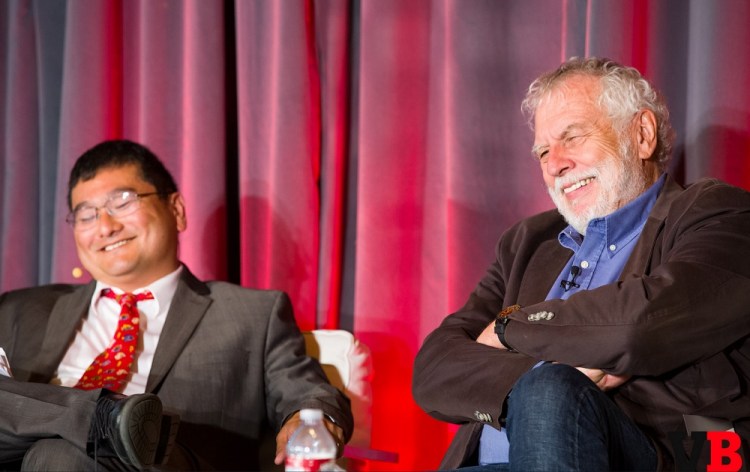
Above: Opening the Xbox
I moved to VentureBeat in 2008. I thought, “Okay, I guess we’re covering startups, we’re covering the venture capital community, I probably won’t write any more game stories.” That turned out to be quite wrong. The game startups, they proliferated with Facebook and apps in 2008. We threw our first game conference during GDC that year and 600 people showed up. VentureBeat was in business covering games. Because of that I got to spend 80 percent of my time covering games. 20 percent is everything else in Silicon Valley.
In 2009 I wrote this story, about the Red Rings of Death. Sometimes you would like to be able to do nothing but this kind of work, where you’re unearthing things. Things like how much warning they had that this was coming, and how they decided to ship the console anyway, because they had to beat Sony out the door this time. The last time around, in the previous launch of the Xbox, Sony had sold 25 million units of the PlayStation 2 before Microsoft sold a single Xbox. Microsoft was in a rush the second time around, and this was what happened.
Games are actually, according to market researcher Newzoo, a $116 billion business in 2017. $50 billion of that is mobile games.
In 2011 I got my kid a flu shot, and my kid got the flu, and then I caught the flu from her, and I got pneumonia after. I had nothing to do for a while, and I couldn’t talk to people, so I just wrote. I wrote these two ebooks. A high point was writing about Blizzard’s cancellation of Titan before anyone else did, but I’ve also made some giant mistakes in my career, like erroneously reporting that Google acquired Twitch when in fact it was Amazon. Google was talking to them, but turned off the talks at some point.
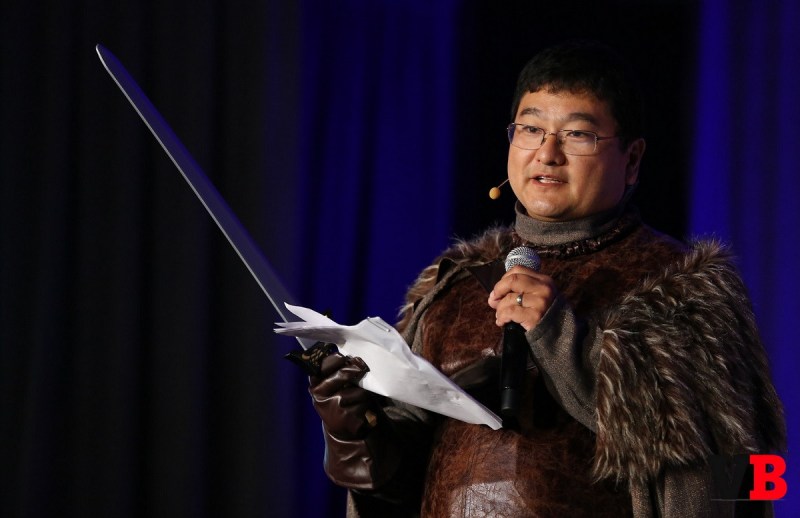
Above: Dean Takahashi at a GamesBeat conference.
GamesBeat now has a staff of seven game-related writers and editors, not including the tech writers that cover tech for the rest of VentureBeat. This is where I am on social media. It’s interesting that 25 percent of my Twitter followers are fake. I’m not sure how that happens or how to get rid of them. I didn’t buy those followers. Who knows how that happens. But social media is far more a part of my daily job than it ever was before. We write a story. Sometimes it’s like a tree falling in the forest and nobody reads it. You have to share your story and figure out ways to get it in front of people. We’re part of this whole attention economy as journalists.
But before I get a big head, the people who create games are probably more like the real celebrities of our industry, like John Carmack, who has more than 800,000 followers.
This is my tally. My analytics tell me that I’ve done 15,000 stories in almost 10 years at VentureBeat, 29 stories a week. That’s pretty tiring. But I only do maybe a dozen game reviews a year. A lot of that is writing the day to day business of games and technology companies. I think of it as a lot of people I’ve met.
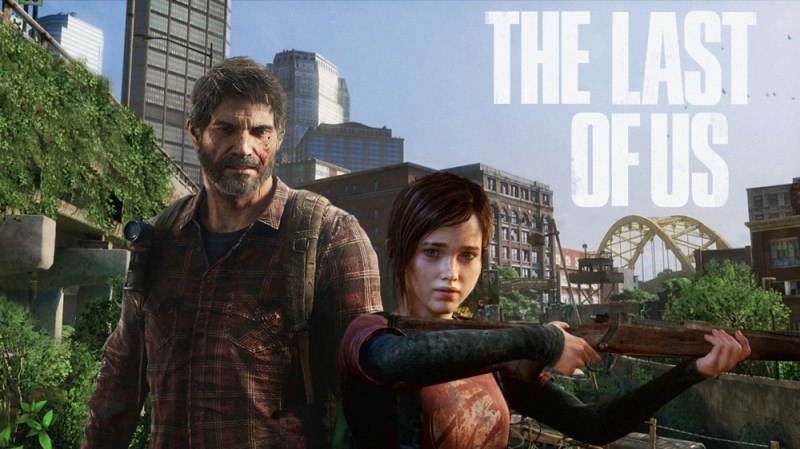
Above: The Last of Us is one of several recent big-budget games to feature a LGBT character.
The Last of Us is my favorite game. I read Malcolm Gladwell’s outliers, and yeah, I’ve put my 10,000 hours into games, many more times than that. It raises the question, am I a gamer?
Gamergate came along in 2014. In 2014, it seemed like the real theme of Gamergate was, “Let’s harass women in the industry.” That was the media take. It seemed like it was purely about sexual harassment. We had a blind spot here, because we have been wrong when covering other media outlets before and so we had a rule of not writing about other media. Let’s not write about ourselves. We’re not that interesting. Let’s write about tech companies.
So this big story that affects the media comes along, and we stayed silent on this for weeks. We didn’t really weigh in on it until Intel stepped in a big pile of crap. Basically caved into Gamergate critics and decided to pull advertising out of Gamasutra, because their critics were complaining about Leigh Alexander, a woman columnist, who was too strident a feminist. Intel caved. They realized they made a mistake. And it started spreading through the industry. We started writing about it a lot more. I wrote a column about how stupid this is, how it’s bad to harass women in the industry. Even though I took a stand like that, the Gamergaters never came after me. They never came after male journalists or game developers. They went after outspoken women game developers.
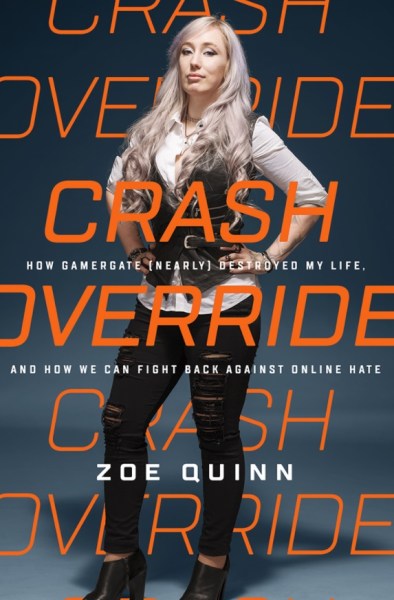
Above: Zoe Quinn’s book Crash Override chronicles her Gamergate experience and how she is fighting back.
I’ll talk about something else that happened this year in a bit, but I interviewed Zoe Quinn about her Gamergate experience and her book that came out this year. I also talked to critics of my own in the Kotaku in Action subreddit, which you would define as pro-Gamergate. And so I got a dose of their attention this year, all because of game journalism ethics issues. They had claimed that this was what this was all about, back in 2014.
It does make you think about how you cover things, as someone focused on the industry here. You can be an outsider as a journalist, being objective as you look at an industry and trying to cover it as best you can. But you can also be an insider getting scoops on the industry from people who you know well, people you trust, your friends. That makes you a good journalist as well. But you do have to go between being an outsider and being an insider as a journalist. That’s one of the best things about the job, and if you don’t take advantage of that, you’re not doing your job right. I think it’s a great way to see things from a different perspective that nobody else sees.
I think it’s good for everyone to ask, “What’s your blind spot?” Editors would ask me, in the early days of game journalism, if I had gone native by being too friendly to the companies I was covering. Gamers now, after Gamergate, started asking the same questions, about whether game journalists are too friendly to game companies. The dot-com bubble—tech journalists maybe didn’t scrutinize these crazy companies that were coming out.
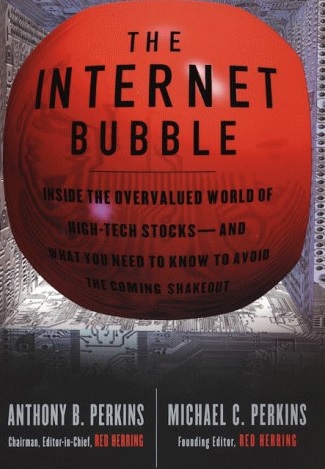
Above: The Internet Bubble
Maybe that bubble would have happened anyway, but it was funny. I worked at the Red Herring at the time. The owners of the Red Herring wrote a book called The Internet Bubble. It was a pretty good book warning about what was coming, but their own company wasn’t positioned for that eventual collapse. The Red Herring under that ownership went out of business, even though the owners foresaw what was happening there. It seemed like an unavoidable fate.
You can think of this difference of inside and outside as being the trade press versus the mainstream press. At the trade press you may pick up better rumors, but do you just go ahead and print them? The mainstream press has a lot of standards for figuring out what the truth is. I think I’ll pause here and say, “Do you guys have any questions?”
I think back to my history, about the Vietnam War. It really does show you how the change you have in perspective, and the diversity of your sources, and whether you’re getting all points of view or not, or if you’re selectively choosing the information and facts you want to present, deciding the truth is a very simple thing — in the Vietnam War, places like Time Magazine, they had their reporters who were witnessing the war in the field writing very skeptical stories about who was winning. And in Washington D.C. they had the bosses of these people overruling them and writing more optimistic stories based on sourcing they had with the Pentagon. You can see why it’s important to have this ability to go back and forth between outside and inside.
Journalistic ethics do matter. If we get free stuff, free trips, we should disclose that. We take long-term loans for consoles, and we disclose that. Some machines that are maybe too expensive for us to buy, we borrow them. We disclose that. If we take trips from groups, trade associations, we disclose that when we’re writing about something that happens at their events, but we don’t take free trips from companies. That’s VentureBeat’s policy. The games press will not have all the same policies, the trade press.
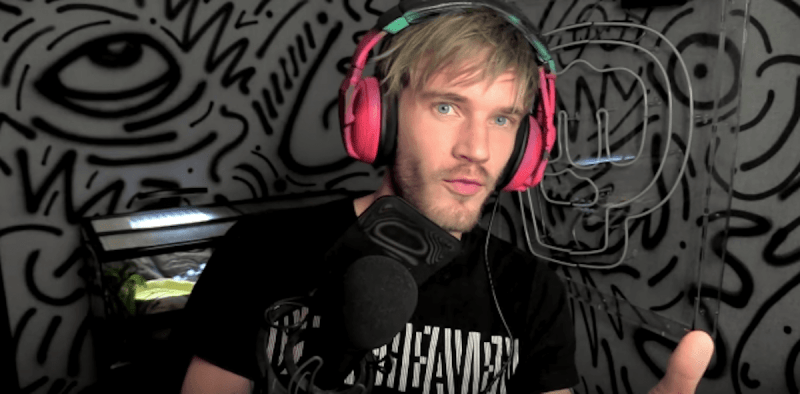
Above: PewDiePie doesn’t want to be considered with Nazis, but his language isn’t helping.
A lot of people get their information from people like this. You remember my followers were in the thousands. PewDiePie is doing a little better than me when it comes to followers in the millions. He’s not a quiet person. He made jokes that made him seem like a Nazi sympathizer, but nobody’s perfect. This draws the distinction between influential people in the industry. On one side you do have journalists. On the other side it’s a new game. Game journalism is changing. You guys asked how game journalism is changing. Well, these people known as influencers are in the picture now. They’re more like personalities and entertainers than they are journalists. They can command the attention of companies more so than game journalists can. That’s an issue.
It leads to this idea, though, of why aren’t more people getting paid to play games? I call this the leisure economy. If you think of what’s going to happen in the future, if we have self-driving cars, then we’re going to have a couple of hours free during the commute, when we’re driving. Half the time we spend in mobile phones now is spent playing games. Logically, the amount of time we’re going to spend playing games in the future is going to go up. If AI comes along and wipes out half the jobs that exist right now, including journalism, then what are we going to do? Do we have to work? Do we want to work? Why should we work if something else is going to do what we used to do? Maybe you can play instead.
Bing Gordon, one of the early employees at Electronic Arts, raised this point years ago. Why don’t companies actually pay gamers to play their games? What models can exist to make that happen? I think we’re pretty far along this road already, with all these kinds of people who make money playing games. Everybody used to envy being a game journalist because you got free games. But a lot more people can make a living in this kind of leisure economy in the future, I think. Our GamesBeat Summit 2018 conference in April will touch on this topic.
